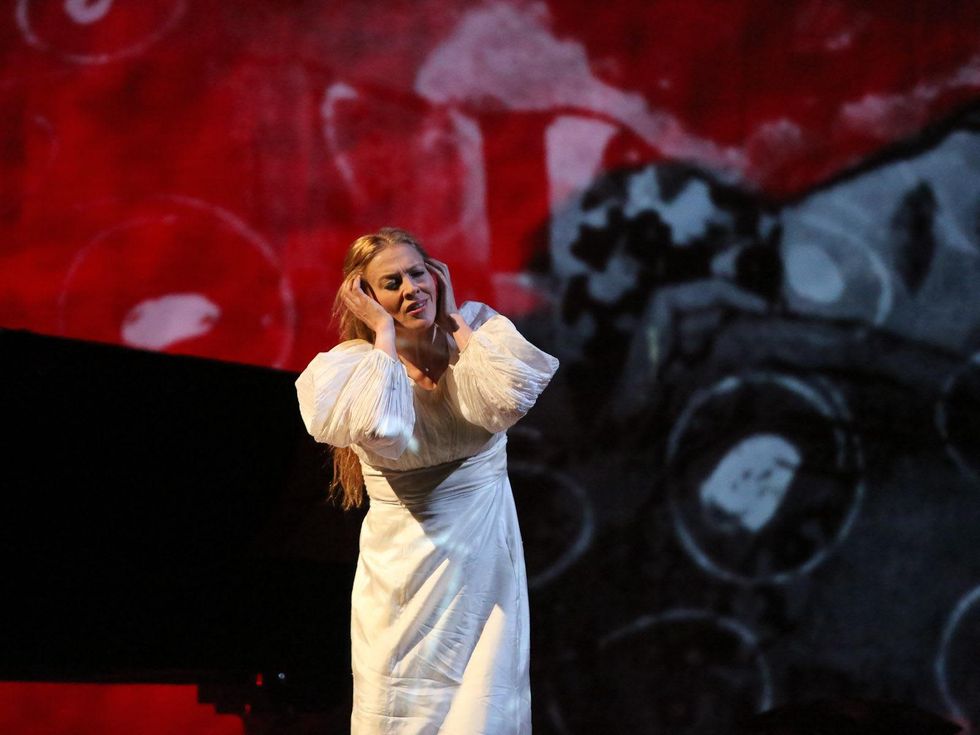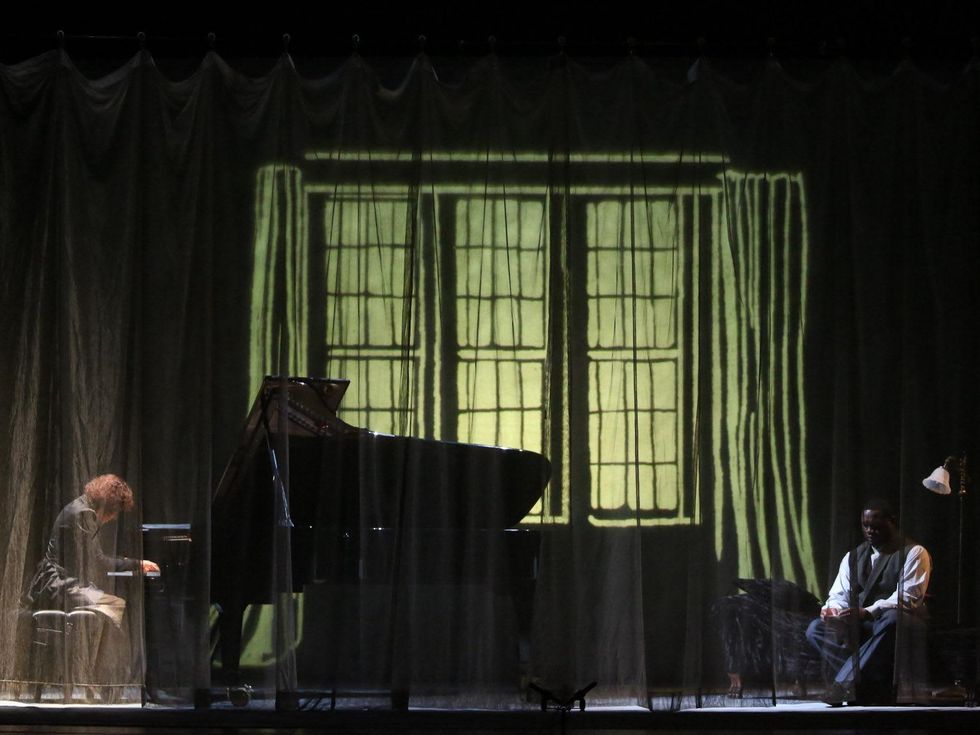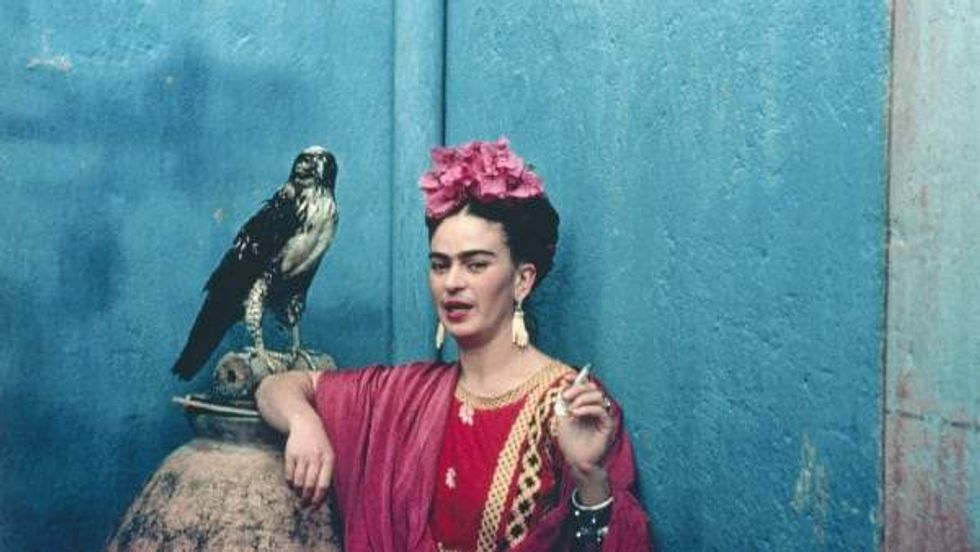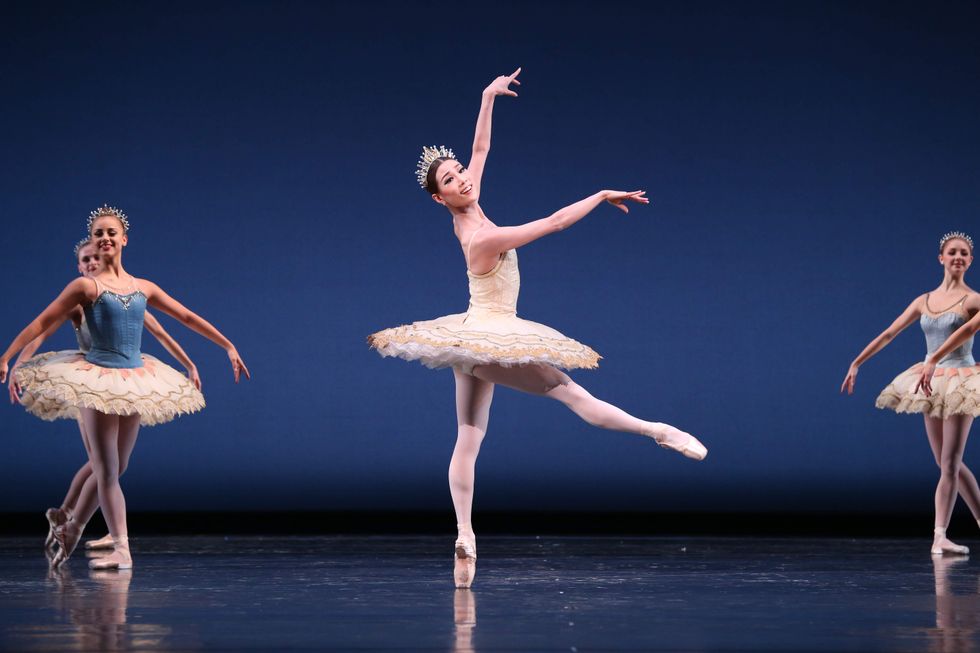The Review is In
Sarah Rothenberg unravels darkness of human psyche in love-obsessed multimedia spectacle
Consider the binary qualities of the symbol of a window. Peer outside and it acts as a portal for a world that's within reach, yet somehow untouchable. Peep inside and you become a voyeur, a stranger invading the privacy of a subject who believes to be isolated, perhaps shielded, from external interaction and judgment.
There's a reason why the Surrealists had a penchant for the window metaphor, like in Salvador Dalí's Woman at the Window of 1925, Rene Margritte's The False Mirror of 1928 and Time Transfixed of 1938, and Max Ernst's Two Children Are Threatened by a Nightingale of 1924, an oil-on-wood that shatters the frame as the confines of two dimensional paintings.
It's this same allegory that imbues Sarah Rothenberg's In the Garden of Dreams with aesthetic dominance. Her 70-minute, trance-like, love-obsessed multimedia spectacle is the fourth in a series of productions staged by Da Camera of Houston that marries creative genres to render an emotionally charged interpretation of a hypothesis as proposed by the artists whose works comprise her gesamtkunstwerk.
Friday's world premiere at the Wortham Theater Center is a testament to what's plausible when layering brilliant scholarly research atop powerful compositions. Rothenberg sketches a bewitching milieu that injects additional high octane, inner psyche turmoil to intensify haunting pieces by Arnold Schoenberg and Johannes Brahms; art by Max Klinger and Gustav Klimt; and the writings of Sigmund Freud and August Strindberg — which can be perceived as daunting, even difficult to ingest to less knowledgeable art consumers.
In the Garden of Dreams is an invaluable ride that unravels the credo of a critical time in the development of art, music, science and theater.
In the Garden of Dreams, in its objective to illustrate the zeitgeist of Viennese thinkers, is clearly laid out. Video projections by Sven Ortel set the mise en scène in the nucleus of turn of the century Vienna, where the audience finds itself observing furtively bass baritone Michael Sumuel in a period townhome, then joining him in a hypnotic reverie mused by unrequited love.
As imagined by lighting and set designer Marcus Doshi, a veiled curtain that opens and closes shifts the effect of the backdrop from voyeurism to spectorial. During the many hallucinogenic trips into the mind of a desperate lover through the music of Brahms, images of Klinger's Brahms Fantasy engulf perceived reality — escapism at its finest.
Isn't that why humans are drawn to artistic experiences? To escape?
Sumuel's luxuriant tone and sincerely shaped melodic lines surely contributed to this pop up alternate physical existence.
A decaying bucolic setting evokes the many symbols in the imagistic poetry of Stefan George, whose text Schoenberg used for his 15-part song cycle The Book of the Hanging Gardens. Swedish mezzo soprano Charlotte Hellekant's decisive performance showed her full mastery over a demanding tonal language whose outcome is designed to rouse heightened emotional content. Equally virtuosic in her vocal and thespian dexterity, Hellekant's committed execution awakened the mystique of the darker side of the unconscious — an allusion to Freud's The Interpretation of Dreams.
Dreams that metamorphose into nightmares and then dissolve into daylight are one thing. Nightmares that dare step over the threshold of psychological truth and overstay their welcome, that's the stuff horror films are made of. Societal norms say that we aren't supposed to find pleasure in witnessing the rise, demise and transfiguration of a broken character. But let's be honest here about schadenfreude: It exists — and everyone does it.
In art, nothing is more intense than unapologetic sincerity.
In essence, what Rothenberg's In the Garden of Dreams accomplishes is to demystify music's journey from the harmonic tradition of Brahms, the symbolism of Wagner and into a new tonality in the hands of Schoenberg. Moreoever, while concerts that are enthusiastic about composers of the Second Viennese School often leave listeners bemused and bewildered rather than informed, Rothenberg and her creative coterie offer a window into the genius of an aesthetic era that doesn't always manifest itself with ease.
Presentations that leave listeners feeling smarter are hard to come by. In this respect, In the Garden of Dreams is an invaluable ride that unravels the credo of a critical time in the development of art, music, science and theater.







